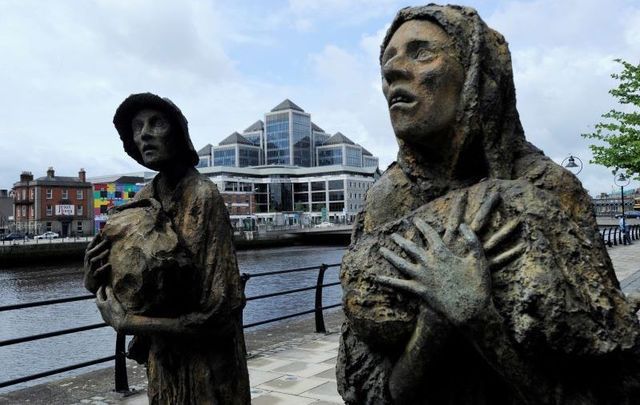The tragic story of the Irish “mud crawlers” who fled to Wales during the Famine.
During the 1840s a great number of Irish, fleeing the Famine, began arriving in the town of Newport, in southeast Wales, in the United Kingdom.
A growing trade route existed across the Irish Sea, between Newport, which exported coal, and Cork, which would often export potatoes to Wales. However, by the 1840s, a large number of desperate Irish began making their way over to Newport on the cargo ships.
At the time, the Monmouthshire Merlin newspaper commented on "the alarming and lamentable appearance of the streets of Newport, crowded with many hundreds of famishing Irish.”
According to local historian Terry Underwood, author of the book "Foul Deeds and Suspicious Deaths in Newport," some Irish families thought that, for around £3 a head, they'd be starting new lives in America, but they instead they ended up in Newport.
Newport authorities were dismayed ay the number of Irish coming into the port and employed watchmen to stop any unwanted immigrants coming into the town. The watchmen were told to tell the Irish to get back on the ships and return to Cork.
Read more
However, some of the captains of the ship decided they would take the impoverished Irish as far as the mouth of the river, near St. Brides.
Here the Irish families would jump overboard, crawling through the thick muddy banks to the shore, rather than return to a life of starvation in Ireland. The frequent sight of the mud-covered Irish earned them the nickname of “mud crawlers” among the locals.

Love Irish history? Share your favorite stories with other history buffs in the IrishCentral History Facebook group.
Sadly, many of the Irish, including children, were too weak from hunger to make it through the mud and a number of them didn’t make it to the shore.
According to Underwood, bodies of both adults and children, thought to have been Irish who didn’t make it to land, have been found in the foundations of buildings that were built along the river.
"These are the remains of our Irish cousins who drowned in the mud, unable to take refuge amongst us without endangering their lives,” he wrote.
* Originally published in 2020, updated in Sept 2024.




Comments